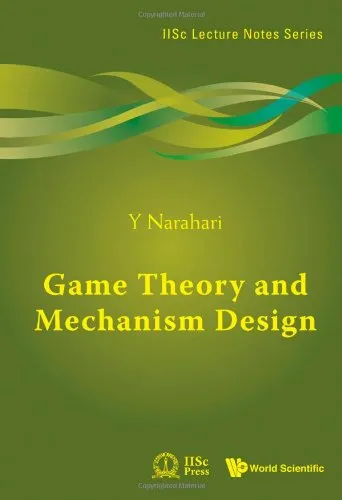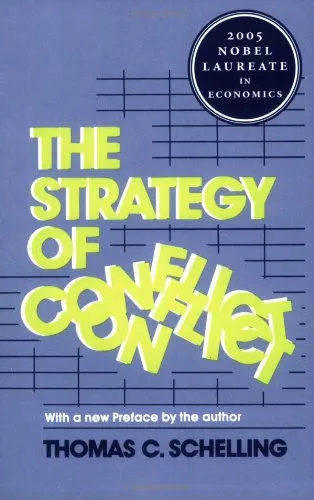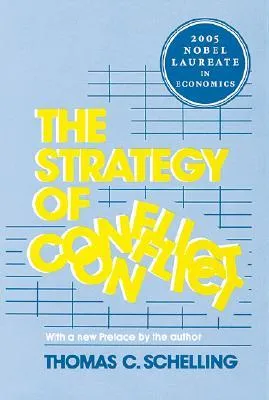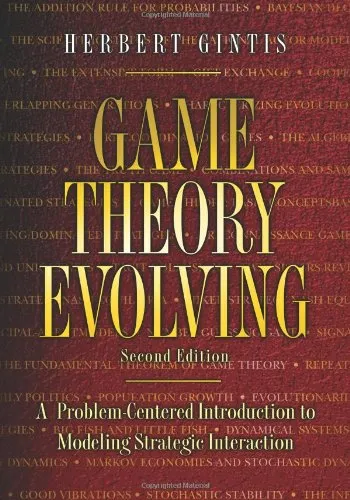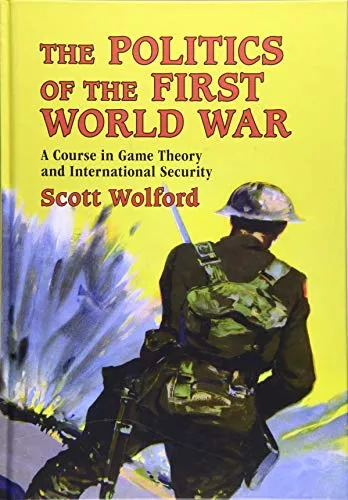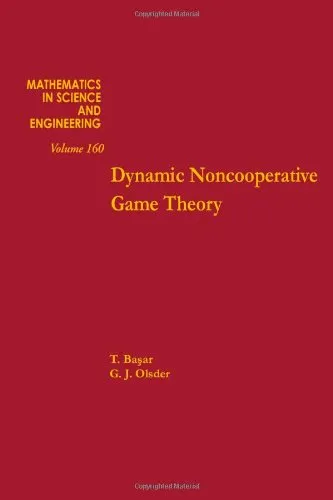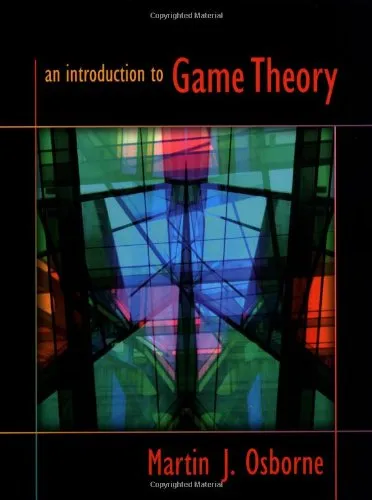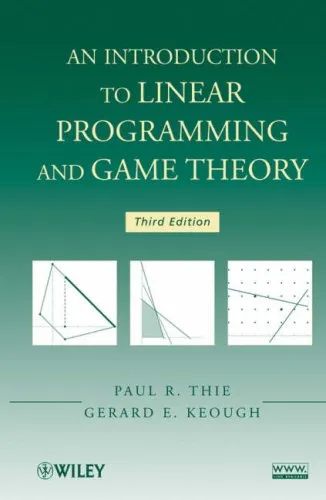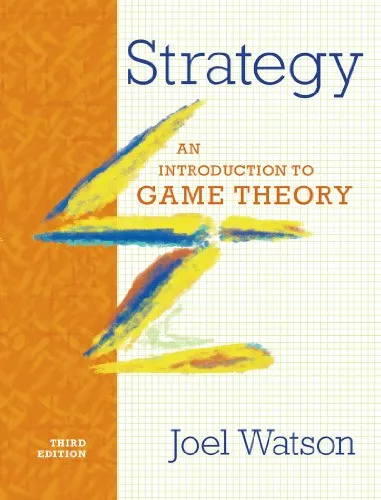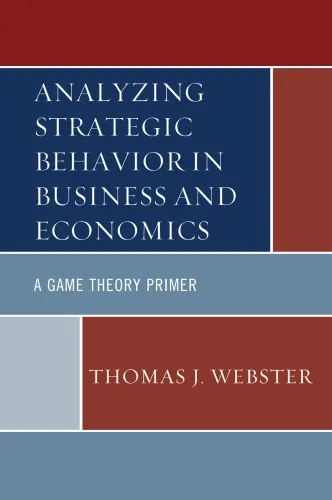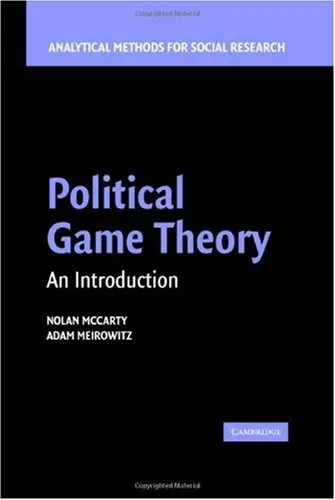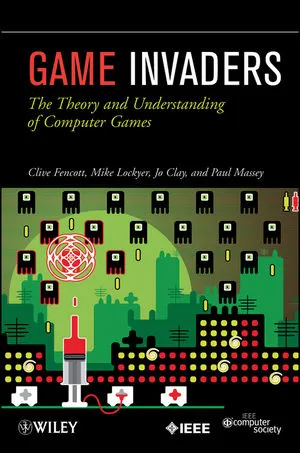Game Theory and Mechanism Design
4.5
Reviews from our users

You Can Ask your questions from this book's AI after Login
Each download or ask from book AI costs 2 points. To earn more free points, please visit the Points Guide Page and complete some valuable actions.Related Refrences:
The book Game Theory and Mechanism Design by Y. Narahari is a distinguished and comprehensive introduction to the pivotal fields of game theory and mechanism design. These disciplines are at the core of economics, computer science, operations management, and a host of other contemporary domains. Tailored for a diverse readership comprising students, academics, and professionals, this book blends theoretical rigor with real-world applications, providing a robust toolbox for solving problems related to strategic decision-making and resource allocation.
A Detailed Summary of the Book
Game Theory and Mechanism Design sets out to demystify the fundamental concepts and methodologies in these critically important subjects. It starts by introducing the foundational principles of game theory, such as strategic form games, Nash equilibrium, and mixed strategies. As the narrative progresses, the book delves into advanced topics like repeated games, stochastic games, and cooperative game theory. Using intuitive examples and relatable scenarios, it explains how rational individuals and organizations make decisions in interactive environments.
The second half of the book transitions into mechanism design—a branch of game theory that moves beyond analysis to actively design systems and incentives. Readers are introduced to topics such as social choice, auctions, voting systems, and matching markets. The book elucidates how one can use mechanism design principles to engineer desirable outcomes, especially in situations involving incomplete or asymmetric information. Special emphasis is placed on designing systems that ensure fairness, efficiency, and stability, which are critical for applications in e-commerce, marketplaces, and public policy.
Each chapter is meticulously structured, offering theoretical exposition, illustrative examples, and exercises for practice. Concepts such as incentive compatibility, individual rationality, and equilibrium properties are thoroughly explored. Case studies drawn from fields like Internet auction design, energy management, and supply chain collaboration make the content practically relevant and engaging.
Key Takeaways
- Gain a thorough understanding of the core principles underlying game theory, including classifications of games and equilibrium concepts.
- Learn how to design mechanisms to achieve specific objectives in strategic environments while considering fairness and efficiency.
- Build a strong foundation for exploring applications across economics, politics, market design, and computer science.
- Understand the importance of incentive compatibility and how to align the incentives of stakeholders in multi-agent systems.
- Acquire problem-solving skills to address real-world challenges in competitive and cooperative settings.
Famous Quotes from the Book
"Game theory gives us a powerful lens to study human interactions, where the fate of one participant depends not just on their strategies but also on the decisions of others."
"The essence of mechanism design lies in creating systems where individuals, acting in their own self-interest, collectively generate the outcomes we desire."
"Equilibrium is not just a state; it is a reflection of balance, strategy, and mutual understanding in a competitive world."
Why This Book Matters
In an era dominated by complexity, interconnectedness, and competition, the knowledge of game theory and mechanism design is invaluable. This book equips readers with the tools to analyze strategic interactions in a systematic and structured way. As technology transforms industries, mechanisms designed for sustainability, fairness, and efficiency play an increasingly significant role. From designing efficient auctions for spectrum allocation to creating algorithms for fair resource sharing in distributed systems, these principles are applicable across diverse fields.
Moreover, the book is accessible to both newcomers and experts, making it a vital resource for anyone looking to deepen their understanding of decision sciences. By blending theoretical insights with practical applications, Y. Narahari ensures that readers walk away with not just knowledge but also the ability to innovate and solve societal challenges.
Ultimately, Game Theory and Mechanism Design stands as a seminal work that bridges the gap between theory and practice. It empowers readers to think critically and strategically, fostering a mindset that is essential in today’s competitive ecosystems.
Free Direct Download
You Can Download this book after Login
Accessing books through legal platforms and public libraries not only supports the rights of authors and publishers but also contributes to the sustainability of reading culture. Before downloading, please take a moment to consider these options.
Find this book on other platforms:
WorldCat helps you find books in libraries worldwide.
See ratings, reviews, and discussions on Goodreads.
Find and buy rare or used books on AbeBooks.
1288
بازدید4.5
امتیاز0
نظر98%
رضایتReviews:
4.5
Based on 0 users review
Questions & Answers
Ask questions about this book or help others by answering
No questions yet. Be the first to ask!
